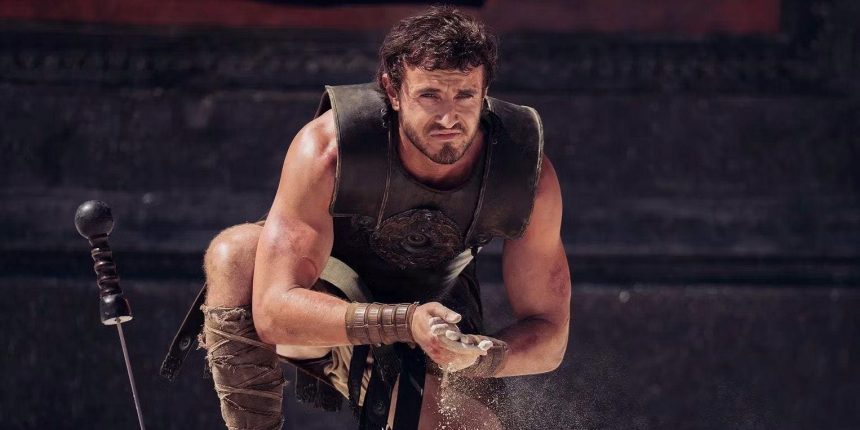The anticipation surrounding Gladiator 2 was palpable, especially for fans of the original 2000 film, a cinematic masterpiece revered by many. However, my decision to watch the sequel was met with hesitance, as I feared it would tarnish the pristine legacy of Gladiator. While I must admit that Gladiator 2 displayed a few commendable aspects—most notably Denzel Washington’s performance—it ultimately fell short of expectations, leaving a lingering regret over my choice to watch it. The shadow of the original film loomed large, making it nearly impossible for the sequel to achieve the same level of greatness and emotional resonance.
Ridley Scott, the auteur behind both the original Gladiator and its sequel, has recently declared intentions for a Gladiator 3, citing the sequel’s impressive box office performance as a motivating factor. The sequel grossed an impressive $320 million globally, with projections suggesting it could reach upwards of $450 million. Despite the film’s production and marketing costs estimated at around $350 million, Scott appears undeterred, contemplating further continuation of this iconic franchise. However, the viability of a third installment will heavily depend on the studio’s willingness to finance additional high-budget projects, especially in the competitive landscape of current cinematic offerings.
In a marketplace now saturated with major releases like Wicked and Moana 2, Gladiator 2 has managed to carve out a respectable point of entry. Box office analysts suggest that, in a less crowded environment, its revenue totals could have been even more impressive. Critical reception to the sequel has been relatively lukewarm, with Gladiator 2 receiving a score of 71% from critics, slightly lower than the original film’s 80%. Interestingly, audience scores remain comparable to Gladiator 1, indicating that while critics may have reservations, the fanbase still finds enjoyment in the series’ continuation.
Delving into the narrative trajectory set by Gladiator 2 raises several intriguing questions for potential future installments. As the sequel concluded with significant character deaths, including key figures like Lucilla, Acacius, and Macrinus, the stage is set for the next generation of leadership. Paul Mescal’s character, Lucius—the son of Maximus and Lucilla—emerges as a central figure poised to inherit a complex legacy, although his ascension to power does not align with historical accuracy. Despite these creative liberties, the film hints at potential conflicts and struggles he may face as he grapples with the power vacuum left in the wake of his predecessors’ demise.
Historically, Gladiator 2 is set in 211 AD, a time rife with political intrigue and strife. Ridley Scott’s interpretations are notorious for bending historical facts, making predictions about a third film’s storyline a challenge. Given the actual historical progression following 211 AD—where Macrinus ruled briefly before the era known as the Crisis of the Third Century began in 235 AD—Scott could draw on this tumultuous period, presenting audiences with themes of power and instability. However, the narrative may also explore a more fantastical interpretation of history, continuing the franchise’s legacy of blending action and dramatic storytelling.
As we look towards the potential of Gladiator 3, it remains to be seen how Scott will navigate the historical elements while remaining true to the dramatic fabric of the series. With the franchise’s legacy at stake, expectations will be high as audiences yearn for a film that honors the original while crafting a uniquely compelling story. As I engage with the unfolding events of this cinematic saga, I’ll continue to share my thoughts and experiences on social platforms, while also pursuing my own narrative endeavors through my science fiction novels. The journey of Gladiator continues, and as Scott forges ahead, fans around the globe will be watching closely to see how this epic tale expands in the future.



